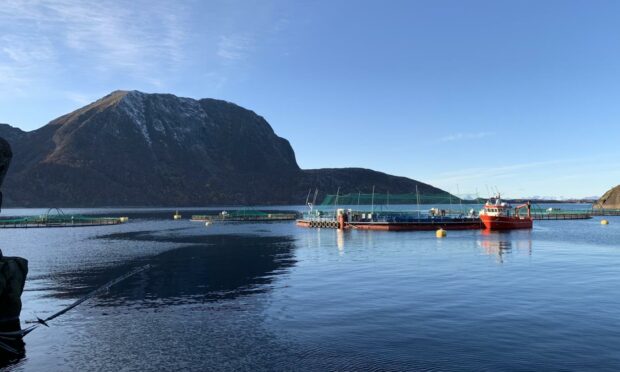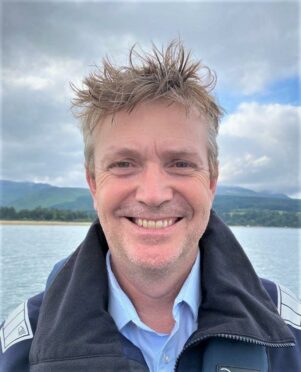An aquaculture company has launched plans to develop the first salmon farm in Scotland with a “semi-closed” containment system, aimed at improving fish welfare and environmental impact.
Loch Long Salmon (LLS) said the technology it intends to use at the Argyll site will keep sea lice out of pens, catch most organic waste and improve the health of the farmed stock.
The company is planning to develop the operation, comprising four circular enclosures with a diameter of up to 164-ft, on the loch, near Beinn Reithe, in 2023.
In semi-closed systems, which have been used in Norway for a number of years, the conventional salmon farm net is completely enclosed by an impermeable and opaque marine fabric material.
The secondary barrier prevents sea lice from getting into the pens, stops seals from seeing the farmed fish and traps most of the salmon faeces and uneaten feed.
LLS said its chosen site was ideal for the introduction of the technology, due to its sheltered setting, deep water, geographical isolation from other salmon farms and proximity to a suitable shore base location.
It added it would not be suitable or economical for conventional open net farming because of its low current.
LLS director, Stewart Hawthorn, said: “We are excited to be the first company bringing this transformative farming system to Scotland, and the Loch Long site provides the ideal environment for semi-closed aquaculture.
“Our technology will allow salmon farming to thrive in Scotland’s rural coastal areas, such as Loch Long, with a significantly improved environmental and fish welfare performance.
“We will be working closely with local stakeholders to demonstrate how the proposed farm will be good for the environment, good for the salmon and good for the local community.”
LLS, which was set up by Ireland-based blue economy project developer Simply Blue Group in 2019, has submitted a planning application for the development to the Loch Lomond and The Trossachs National Park Authority.
The company said the planned fish farm would create around 12 jobs, including site management, farming and fish health technicians, engineers, mechanics and a waste system specialist.
It aims to produce between 15,000 and 20,000 tonnes of salmon annually.

